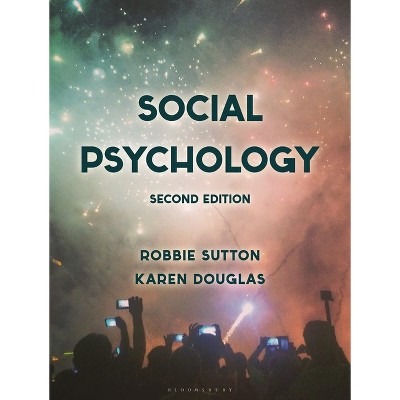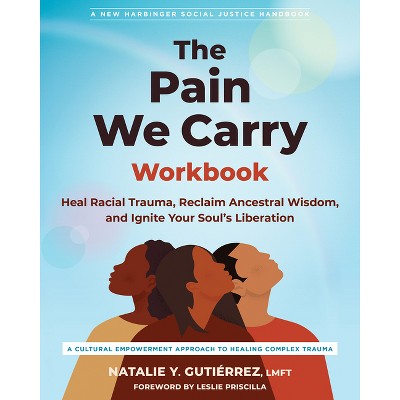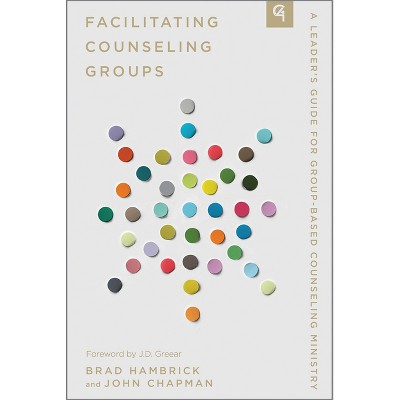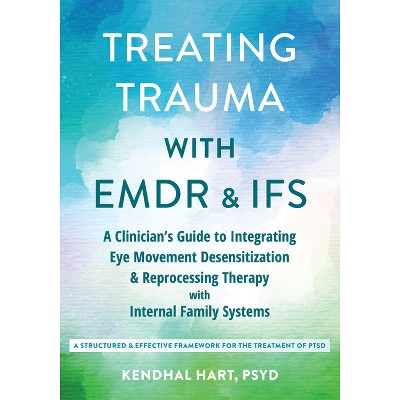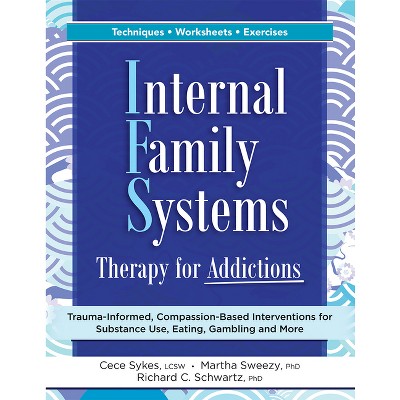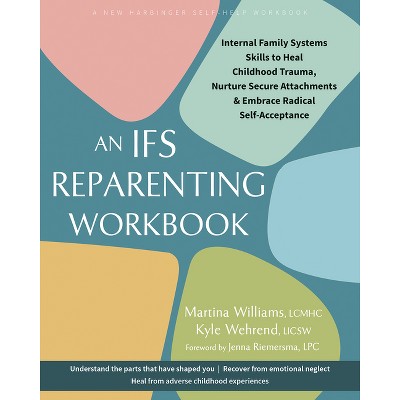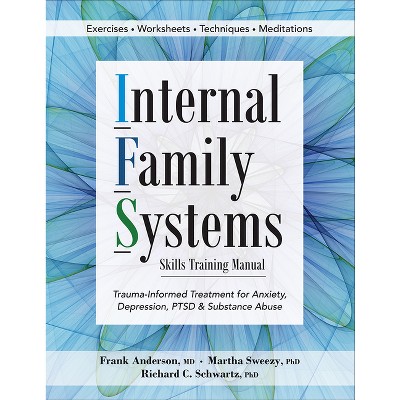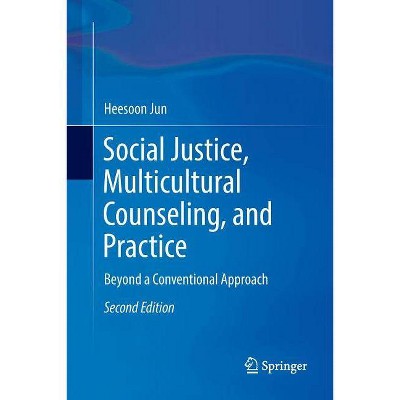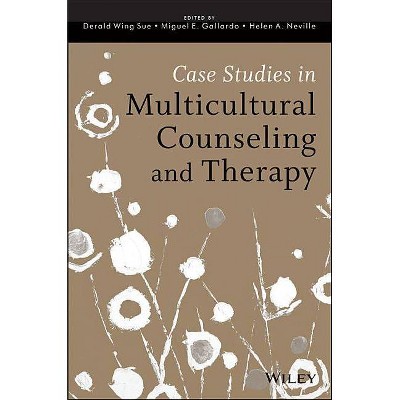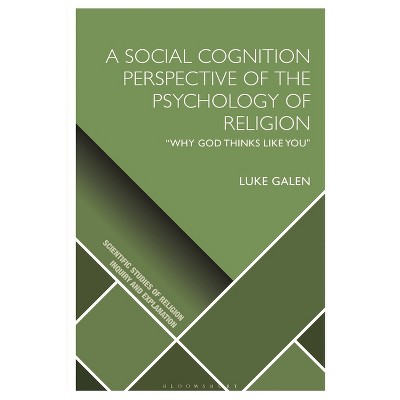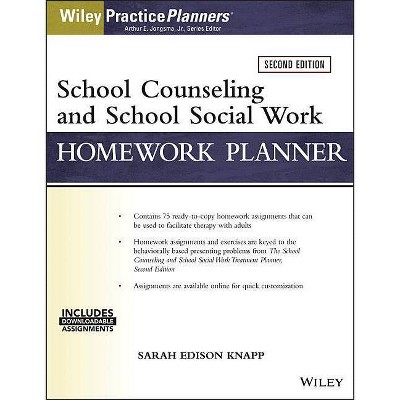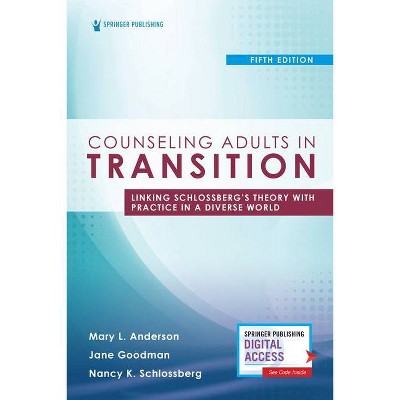Sponsored

Decolonizing "Multicultural" Counseling Through Social Justice - (International and Cultural Psychology) by Rachael D Goodman & Paul C Gorski
In Stock
Sponsored
About this item
Highlights
- Multicultural counseling and psychology evolved as a response to the Eurocentrism prevalent in the Western healing professions and has been used to challenge the Eurocentric, patriarchal, and heteronormative constructs commonly embedded in counseling and psychology.
- About the Author: Dr. Rachael D. Goodman is an Assistant Professor in the Counseling and Development Program at George Mason University.
- 174 Pages
- Psychology, Social Psychology
- Series Name: International and Cultural Psychology
Description
Book Synopsis
Multicultural counseling and psychology evolved as a response to the Eurocentrism prevalent in the Western healing professions and has been used to challenge the Eurocentric, patriarchal, and heteronormative constructs commonly embedded in counseling and psychology. Ironically, some of the practices and paradigms commonly associated with "multiculturalism" reinforce the very hegemonic practices and paradigms that multicultural counseling and psychology approaches were created to correct.
In Decolonizing "Multicultural" Counseling through Social Justice, counseling and psychology scholars and practitioners examine this paradox through a social justice lens by questioning and challenging the infrastructure of dominance in society, as well as by challenging ourselves as practitioners, scholars, and activists to rethink our commitments. The authors analyze the ways well-meaning clinicians might marginalize clients and contribute to structural inequities despite multicultural or cross-cultural training, and offer new frameworks and skills to replace the essentializing and stereotyping practices that are widespread in the field. By addressing the power imbalances embedded in key areas of multicultural theory and practice, contributors present innovative methods for revising research paradigms, professional education, and hands-on practice to reflect a commitment to equity and social justice. Together, the chapters in this book model transformative practice in the clinic, the schools, the community, and the discipline. Among the topics covered:
- Rethinking racial identity development models.
- Queering multicultural competence in counseling.
- Developing a liberatory approach to trauma counseling.
- Decolonizing psychological practice in the context of poverty.
- Utilizing indigenous paradigms in counseling research.
- Addressing racism through intersectionality.
A mind-opening text for multicultural counseling and psychology courses as well as other foundational courses in counseling and psychology education, Decolonizing "Multicultural" Counseling through Social Justice challenges us to let go of simplistic approaches, however well-intended, and to embrace a more transformative approach to counseling and psychology practice and scholarship.
From the Back Cover
Multicultural counseling and psychology evolved as a response to the Eurocentrism prevalent in the Western healing professions and has been used to challenge the Eurocentric, patriarchal, and heteronormative constructs commonly embedded in counseling and psychology. Ironically, some of the practices and paradigms commonly associated with "multiculturalism" reinforce the very hegemonic practices and paradigms that multicultural counseling and psychology approaches were created to correct.
In Decolonizing "Multicultural" Counseling through Social Justice, counseling and psychology scholars and practitioners examine this paradox through a social justice lens by questioning and challenging the infrastructure of dominance in society, as well as by challenging ourselves as practitioners, scholars, and activists to rethink our commitments. The authors analyze the ways well-meaning clinicians might marginalize clients and contribute to structural inequities despite multicultural or cross-cultural training, and offer new frameworks and skills to replace the essentializing and stereotyping practices that are widespread in the field. By addressing the power imbalances embedded in key areas of multicultural theory and practice, contributors present innovative methods for revising research paradigms, professional education, and hands-on practice to reflect a commitment to equity and social justice. Together, the chapters in this book model transformative practice in the clinic, the schools, the community, and the discipline. Among the topics covered:
- Rethinking racial identity development models.
- Queering multicultural competence in counseling.
- Developing a liberatory approach to trauma counseling.
- Decolonizing psychological practice in the context of poverty.
- Utilizing indigenous paradigms in counseling research.
- Addressing racism through intersectionality.
A mind-opening text for multicultural counseling and psychology courses as well as other foundational courses in counseling and psychology education, Decolonizing "Multicultural" Counseling through Social Justice challenges us to let go of simplistic approaches, however well-intended, and to embrace a more transformative approach to counseling and psychology practice and scholarship.
About the Author
Dr. Rachael D. Goodman is an Assistant Professor in the Counseling and Development Program at George Mason University. Dr. Goodman's interests focus on social justice issues in counseling, with an emphasis on trauma counseling, including historical/transgenerational trauma, systemic oppression/marginalization, immigrants and refugees, and disaster response/community outreach. Her research and clinical work has included outreach and trauma counseling among marginalized populations, particularly in communities that have experienced oppression or natural/human-made disaster. Currently, Dr. Goodman is conducting research using a community-based participatory research (CBPR) model, focused on the experiences of immigrant and refugee children and families, including transgenerational trauma and resilience.
Paul C. Gorski is an Associate Professor of Integrative Studies at George Mason University, where he teachers courses on social justice, human rights, and animal rights. He isa Research Fellow in the Center for the Advance of Well-Being and on the board of directors of the International Association for Intercultural Education. His recent books include Reaching and Teaching Students in Poverty: Strategies for Erasing the Opportunity Gap, The Big Lies of School Reform (with Kristien Zenkov), The Poverty and Education Reader (with Julie Landsman), and Case Studies on Diversity and Social Justice Education (with Seema Pothini). He lives in Falls Church, Virginia, with his cats Unity and Buster.
Shipping details
Return details
Frequently bought together



Guests also viewed
Discover more options
